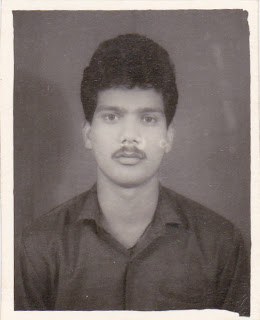Mr Pankaj Kumar Gupta
Mr Pankaj Gupta is an Indian national now aged 41, was employed as a researcher.
In 1996, Mr Gupta originally from Pankhot Punjab travelled to Pakistan to work. In 2004 he was arrested by the Pakistani authorities for being a "spying" on behalf of India.
It is alleged by Mr Gupta's family, that Mr Gupta was was interrogated and tortured by the Pakistani authorities for five years before he was sentenced to serve a seven year term prison sentence at Muzaffarbad Prison in Kashmir. About two months ago, Mr Gupta was transferred to Gilgit Prison situated in Balistan. He has now been transferred to Hadiala Central Jail in Rawalpindi.
The Pakistani authorities failed to notify the Indian authorities immediately upon his detention that they had arrested and were detaining Mr Gupta an Indian national. This is in breach of international law. Mr Gupta's detention is unlawful.
Despite numerous requests, the Pakistani authorities have failed to disclose details of Mr Gupta's arrest, the charges against him and the details of his trial and subsequent conviction. Mr Gupta was (and continues) to be denied access to consular services and legal advice.
This case has been reported to the UN, Amnesty International, Human Rights Watch as well as the Indian and Pakistani authorities. (President Zardari, Prime Minister of Pakistan, Mr Rehman Malik, the Interior Minister of Pakistan).
Following receipt of details of Mr Gupta's case, I was contacted by the family of another Indian national who has been detained in the same prisons as Mr Gupta. Once again, this prisoner was also arrested for alleged "spying" for India. This particular prisoner from Punjab was only 15 years of age when he was arrested by the Pakistani authorities some eight years ago. His family only found out that he was in a prison in Pakistan two years ago. They do not wish to be identified.
The detention of this young man too, is unlawful and a gross and blatant abuse of human rights.
Further reading:
http://timesofindia.indiatimes.com/city/chandigarh/Another-Punjabi-languishing-in-Pak-jail/articleshow/17592783.cms
Mr Pankaj Gupta is an Indian national now aged 41, was employed as a researcher.
In 1996, Mr Gupta originally from Pankhot Punjab travelled to Pakistan to work. In 2004 he was arrested by the Pakistani authorities for being a "spying" on behalf of India.
It is alleged by Mr Gupta's family, that Mr Gupta was was interrogated and tortured by the Pakistani authorities for five years before he was sentenced to serve a seven year term prison sentence at Muzaffarbad Prison in Kashmir. About two months ago, Mr Gupta was transferred to Gilgit Prison situated in Balistan. He has now been transferred to Hadiala Central Jail in Rawalpindi.
The Pakistani authorities failed to notify the Indian authorities immediately upon his detention that they had arrested and were detaining Mr Gupta an Indian national. This is in breach of international law. Mr Gupta's detention is unlawful.
Despite numerous requests, the Pakistani authorities have failed to disclose details of Mr Gupta's arrest, the charges against him and the details of his trial and subsequent conviction. Mr Gupta was (and continues) to be denied access to consular services and legal advice.
This case has been reported to the UN, Amnesty International, Human Rights Watch as well as the Indian and Pakistani authorities. (President Zardari, Prime Minister of Pakistan, Mr Rehman Malik, the Interior Minister of Pakistan).
Following receipt of details of Mr Gupta's case, I was contacted by the family of another Indian national who has been detained in the same prisons as Mr Gupta. Once again, this prisoner was also arrested for alleged "spying" for India. This particular prisoner from Punjab was only 15 years of age when he was arrested by the Pakistani authorities some eight years ago. His family only found out that he was in a prison in Pakistan two years ago. They do not wish to be identified.
The detention of this young man too, is unlawful and a gross and blatant abuse of human rights.
Further reading:
http://timesofindia.indiatimes.com/city/chandigarh/Another-Punjabi-languishing-in-Pak-jail/articleshow/17592783.cms








13+(1).jpg)

6.jpg)